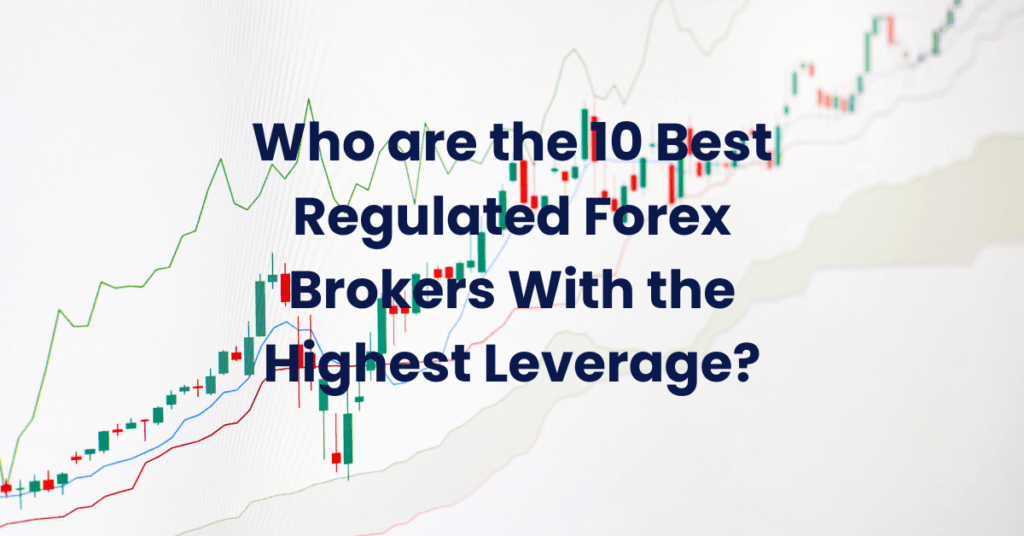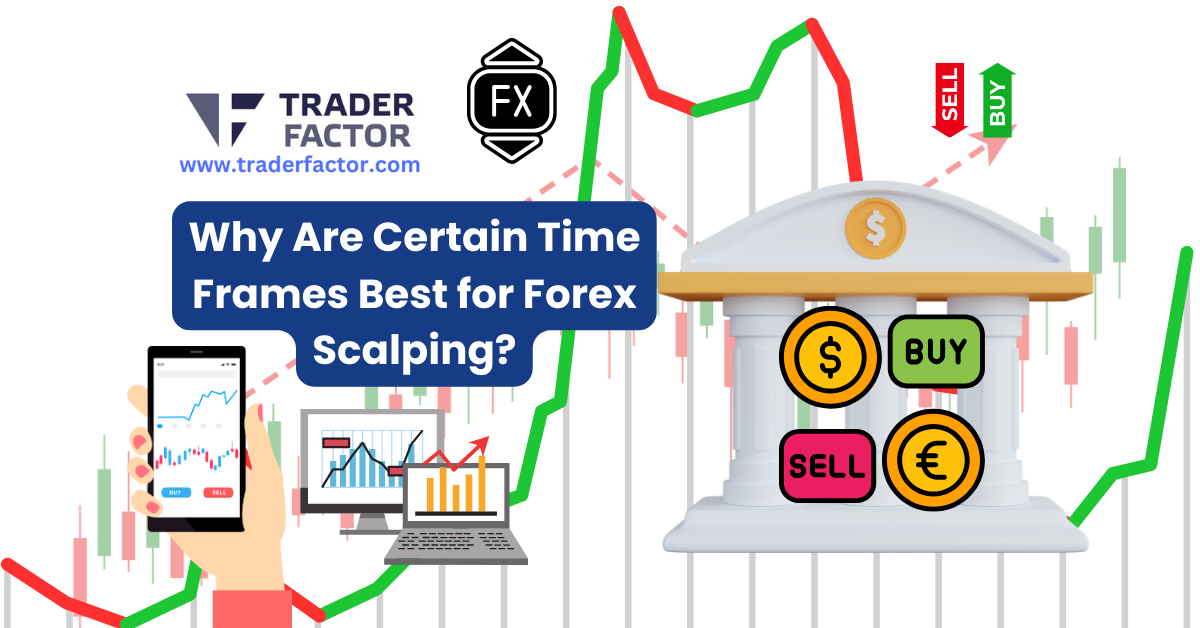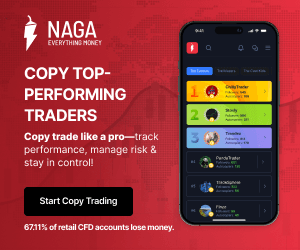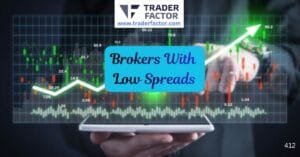Choosing the right time frame for forex scalping is much like picking the perfect wave as a surfer; your success depends on the timing, the size, and the power of the wave.
Time Frames Best for Forex Scalping – As a scalper, you’re in the business of making quick, frequent trades, leveraging small price changes to gather profits. However, not all time frames provide the same opportunities. Some might leave you riding a wave that’s too weak or too wild.
You might wonder why certain time frames prove to be more profitable than others. Well, it’s time to unlock the secrets behind the selection of these time frames, and how they can affect your scalping outcomes.
Are you ready to dive deeper into the ocean of forex scalping?
Table of Contents
ToggleUnderstanding Forex Scalping
To truly master forex scalping, you need to grasp its core principles and strategies. The heart of these strategies lies in scalping psychology, which is all about making fast decisions based on the market’s minute-by-minute fluctuations. You’ll need to be sharp, focused, and able to handle pressure without letting emotions cloud your judgment.
Now, let’s talk about scalping indicators. These are your tools for identifying potentially profitable trades. Popular indicators include the stochastic oscillator, moving averages, and Bollinger bands. It’s important to choose indicators that you understand and can confidently use in a fast-paced trading environment. Remember, in scalping, every second counts.
However, it’s not enough to just understand these concepts. You’ve got to apply them. Practice using different scalping indicators in a demo account until you’re comfortable. Work on your mindset, learning to stay calm and rational even when the market seems against you. The more you practice, the more you’ll improve your scalping skills.
Importance of Time in Forex Scalping
In forex scalping, understanding the significance of timing is crucial for your success. Your scalping efficiency can shoot up or plummet down based on how well you grasp the time sensitivity involved in this trading method.
Let’s break it down. Forex market operates 24 hours a day, but not all hours are equally profitable for scalping. You need to identify those specific time frames when the market is most volatile, as these periods offer a higher number of trading opportunities and potential for profits.
Here is a simplified breakdown of the importance of time in forex scalping:
| Forex Market Hours | Scalping Opportunities | Profit Potential |
| Low Volatility Hours | Fewer | Lower |
| High Volatility Hours | Higher | Higher |
| Optimal Scalping Hours | Highest | Highest |
As you can see, timing your trades during the high volatility or optimal scalping hours can significantly enhance your scalping efficiency. Remember, in forex scalping, every second counts. So, be time sensitive, know when to enter and exit the market, and you’ll increase your chances of being a successful forex scalper.

Most Profitable Time Frames for Scalping
Navigating the intricacies of the forex market, it’s essential that you pinpoint the most profitable time frames for scalping. Identifying these periods can significantly boost your trading success and reduce scalping risks. The key is to understand how different market hours influence currency price fluctuations.
One of the most commonly used scalping indicators is the overlap between the London and New York sessions (8:00 AM to 12:00 PM EST). During this period, the market is highly liquid, resulting in tighter spreads and increased volatility. Essentially, this means more opportunities for quick profits.
However, don’t overlook the Asian session (7:00 PM to 4:00 AM EST). Although it’s often less volatile, it can provide profitable scalping opportunities, particularly in currency pairs involving the Japanese Yen.
Yet, remember, each time frame carries its own scalping risks. It’s crucial to adapt your strategies in response to market conditions. For instance, while high volatility might offer more trading opportunities, it also increases the potential for significant losses.
Ultimately, the best time frame for scalping is dependent on your trading style, risk tolerance, and understanding of the market. Always monitor the market carefully and adjust your strategies as necessary.

Impact of Market Volatility on Scalping
You’ve got the basics of forex scalping down, but have you considered the role of market volatility?
It’s key to understand how changes in market volatility can impact your scalping strategy.
Let’s discuss how it affects your trading and ways to navigate these unpredictable waters.
Understanding Market Volatility
While scalping in the forex market, it’s crucial to comprehend how market volatility can significantly influence your trading strategies. Market fluctuations can either make or break your trades. So, to stay on top, you need to understand the dynamics of volatility.
- Volatility indicators: These tools measure market volatility and help you strategize your trades accordingly. They show you the pace at which price changes for a set of returns.
- High volatility: This period can bring great profit opportunities, but also high risk. It’s essential to tread carefully.
- Low volatility: Here, prices are steady, making it safer but less profitable.
- Unexpected changes: These can occur due to economic news or events, causing sudden spikes in volatility.
Understanding these aspects can make your scalping journey smoother and more profitable.
Volatility’s Effect on Scalping
In the world of forex scalping, it’s crucial to note that market volatility can significantly impact your trading decisions and outcomes. This is where understanding scalping psychology is vital.
Volatility isn’t always your enemy; sometimes, it can be your best friend. It’s about how you perceive and handle it. High volatility often means more trading opportunities, but it also increases risks.

Risk management becomes even more critical in conditions of high volatility. You need to adjust your stop-loss and take-profit levels to protect your profits and limit losses.
Don’t let the fear of volatility paralyze you; instead, use it as a tool to make better trading decisions. Remember, in forex scalping, a good grasp of volatility’s impact can make a world of difference in your trading success.
Strategies for Selecting Time Frames
Choosing the right time frame for forex scalping can significantly influence your trading success, so it’s vital to have a strategic approach. The following strategies will guide you in making informed decisions when selecting time frames:
- Use Scalping Indicators: Scalping indicators can help you identify potential trading opportunities. They provide real-time data, allowing you to make quick decisions, which is crucial in scalping.
- Understand Scalping Psychology: Scalping requires a level-headed approach. Emotional decisions can lead to losses. Therefore, you must understand and manage your emotions to succeed.
- Choose High-Volume Trading Hours: Trading during these periods increases the chances of quick trades due to high liquidity.
- Consider Your Availability: You need to be available to monitor your trades. Therefore, select time frames that align with your schedule.

Maximizing Gains With Effective Scalping
You’re ready to boost your profits with effective scalping, aren’t you?
Let’s first sharpen your understanding of the Forex scalping strategy.
We’ll then explore optimal scalping time frames and discuss how to minimize risk while scalping.
Understanding Forex Scalping Strategy
Let’s dive right into understanding the Forex scalping strategy, a powerful tool that can maximize your gains when used effectively. To grasp this method, you need to comprehend two key elements: Scalping psychology and Scalping indicators.
- Scalping Psychology: This involves quick decision-making and stress management. You’ll need a cool head to make multiple trades within short time frames.
- Scalping Indicators: These are technical tools that help you identify potential trading opportunities. Examples include moving averages, stochastic oscillators, and Bollinger Bands.
- Risk Management: Set strict stop-loss and take-profit levels to protect your capital.
- Broker Selection: Choose a broker who offers low spreads and fast execution speed.
Master these components and you’re on your way to maximizing your Forex scalping gains.

Optimal Scalping Time Frames
To maximize your gains with effective scalping, it’s crucial to identify the optimal time frames for trading. Understanding scalping psychology and the right scalping indicators can greatly influence your success.
High volatility periods, usually associated with key economic announcements, offer the best opportunities for scalping. This is when the market moves fast and bid-ask spreads are narrow, allowing you to seize quick profits.
However, mind your scalping psychology. It’s about discipline and rapid decision-making. You can’t second-guess your indicators or hesitate. You must act swiftly, capitalize on small price changes, and exit the trade as soon as your target profit is reached.

Reducing Risk in Scalping
While scalping can yield quick profits, it’s equally crucial to minimize your risks to enhance your overall trading performance. This can be achieved by understanding scalping psychology and leveraging technology.
Here’s a list of tips to help you:
- Understand Scalping Psychology: Accept that losses are part of the game. Don’t let fear or greed dictate your decisions. Stay patient and disciplined.

- Leverage Technology: Use trading software to implement stop-loss orders and take-profit levels automatically, reducing the chance of human error.
- Limit Leverage: While leverage can magnify profits, it also increases risk. Keep leverage at a manageable level.
- Have a Plan: Before you enter a trade, know your exit strategy. This reduces emotional decision making, leading to more consistent results.
Frequently Asked Questions

What Is the Minimum Amount of Investment Required to Start Forex Scalping?
There’s no fixed minimum for scalping startup costs. However, you’d typically need a reasonable initial investment to cover potential losses. Experts suggest starting with at least $500-$1000 for effective initial investment strategies.
How Does Forex Scalping Differ From Other Trading Strategies Like Day Trading or Swing Trading?
Forex scalping differs as it uses short time frames for quick trades, maximizing scalping efficiency and versatility. Unlike day or swing trading, you’re in and out of the market rapidly, seizing small profit opportunities.

What Are the Potential Risks Associated With Forex Scalping?
Forex scalping carries risks like rapid market changes and high volatility. You must master scalping psychology and risk management to anticipate moves, minimize losses, and make quick decisions. It’s not suitable for everyone.
Can Forex Scalping Be Automated Using Trading Bots or Software?
Absolutely, you can automate forex scalping using trading bots or software. However, remember, bot accuracy and the effectiveness of scalping algorithms aren’t always perfect. They’re tools, not guarantees, in this high-risk trading strategy.

Are There Any Specific Regulations or Legal Considerations for Forex Scalping?
Yes, there are ‘Scalping Restrictions’ to consider. Some countries have legal considerations around forex scalping. Always ensure you’re legally protected by understanding local trading laws before you engage in scalping activities.
Conclusion – Time Frames Best for Forex Scalping
So, you’ve seen how the right time frames can impact your forex scalping success. Volatility and strategic selection of time frames play crucial roles. By understanding these factors, you’ll not only enhance your scalping but also increase your profitability.
Remember, it’s all about timing, strategy, and staying one step ahead of the market. Keep these tips in mind and you’ll be well on your way to maximizing your gains with effective scalping.
Disclaimer:
All information has been prepared by TraderFactor or partners. The information does not contain a record of TraderFactor or partner’s prices or an offer of or solicitation for a transaction in any financial instrument. No representation or warranty is given as to the accuracy or completeness of this information. Any material provided does not have regard to the specific investment objective and financial situation of any person who may read it. Past performance is not a reliable indicator of future performance.

















